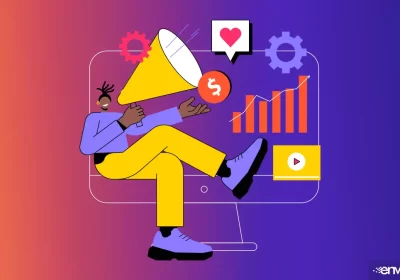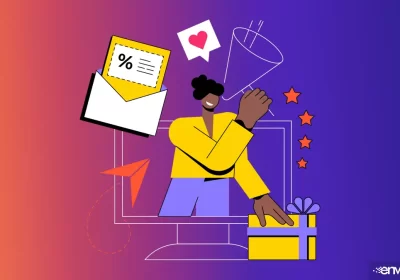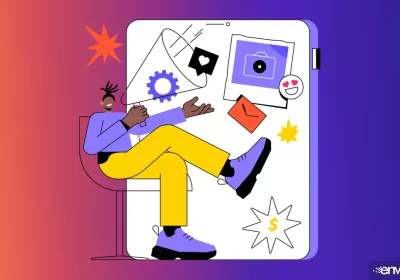How The Black Swan Event is Affecting eCommerce in 2020

On March 11th, 2020, the World Health Organization declared COVID-19 as a global pandemic. The news was expected. The virus had spread from China to across the world at alarming rates. Global panic and concern set in due to this new coronavirus.
It’s safe to say that COVID-19 is one of the defining events of the decade. In just a few months, this pandemic has had a significant impact on everyone around the world.
In just a few weeks, brick-and-mortar businesses have undoubtedly felt the impact of this new way of life. But what about commerce businesses?
In this article, we’re analyzing the eCommerce industry as a whole. We want to explore how the Black Swan event has affected the space. But, before we do that, it’s essential that we understand the panic buying we noticed from consumers.

How The Black Swan Event Influenced Panic Buying
No matter how much the government and various other sources told us not to panic, many people still decided to stock up.
We saw images on social media and the news where people stocked up on essential household items. They purchased toilet paper, as well as medical supplies such as masks, gloves, and sanitizers. This demand made it challenging for brick-and-mortar businesses and online stores to keep up.
There are different reasons why people were panic buying. Some noteworthy reasons are due to herd mentality. As Dr. Sharam Heshmat explains:
But people weren’t just stock-piling on foods. In fact, Nielsen, a market research company, has identified six key consumer behavior thresholds connected to the COVID-19 outbreak:
- Increase in shopping and other online activity
- Restricted living
- Living a new normal
- Proactive health-minded buying
- Reactive health management
- Pantry stock up
Research has shown that Generation Z and Millennials are the groups that have most altered their buying behaviors. These youngest people in society did not just change their purchase behaviors. They also cut back on experiences, and stocked up more on essential items.
While women are still concerned about the pandemic, it seems that men are the group whose shopping behaviors changed more than women.
Industries That Saw an Increase in Sales In April 2020
Many eCommerce businesses entered 2020 with reason to be optimistic. Then the pandemic hit. The COVID-19 epidemic has flipped business models upside down. Many companies are struggling to keep up with consumer behavior, which is rapidly changing from month to month.
Research has shown that the Black Swan event has had a significant impact on eCommerce sales in general. Adobe’s Digital Economy Index notes that 49% in eCommerce sales were seen in April, compared to March. Adobe worked with 80% of the top online retailers in order to gather this information data. It also analyzed around one trillion online transactions over the past few months.
The specific area with the most notable increase has been online grocery shopping. Research from Adobe highlights that there was a 110% uptrend in daily sales, from March to April.
But big brands like Amazon, Walmart, and Instacart have had to hire more employees to keep up with consumer demands. And this period has been great for Instacart which focuses on grocery delivery. It saw a profit for the first time after selling $700 million in the first two weeks of April.this was a 459% increase from the company’s December 2019 sales.
Adobe’s data also shows that consumers are shopping for more than just food online. Electronic sales, in particular, have seen a 58% increase from March to April. This is an interesting observation because electronic sales haven’t been doing well over the past few years. In fact, online electronic sales have been steadily decreasing from the year 2014. However, since the pandemic hit, sales have increased, and the decline has flattened.
The Future Of eCommerce
Before the pandemic hit, the future for eCommerce was already looking bright. B2B commerce was exploding, and customer experience and personalization were among the core focuses on helping improve sales.
Research that revel different statistics from month to month is ongoing. Therefore, it’s challenging to know what the future holds. Still, one this is certain, shoppers are adapting. And as noted above, this adaptation is changing how and what they are buying.
The US Presidential Elections is just a few short weeks away. This is causing more anxiety to an already stressful situation. Unfortunately, the Black Swan event will continue having a significant impact on businesses – both brick-and-mortar, and eCommerce. But if we remain strong TOGETHER, hopefully 2021 will be a better year for all of us.
You may also enjoy reading: How To Promote Your Blog Posts With Quora Marketing

Christina Davis
WEB CONTENT DIRECTOR
Christina is the Web Content Director at Envisager Studio. She leads the content creation process and ensures tone and key messaging personifies the client’s brand and engages target markets. In her spare time, she writes about content marketing, content management, and website content.


